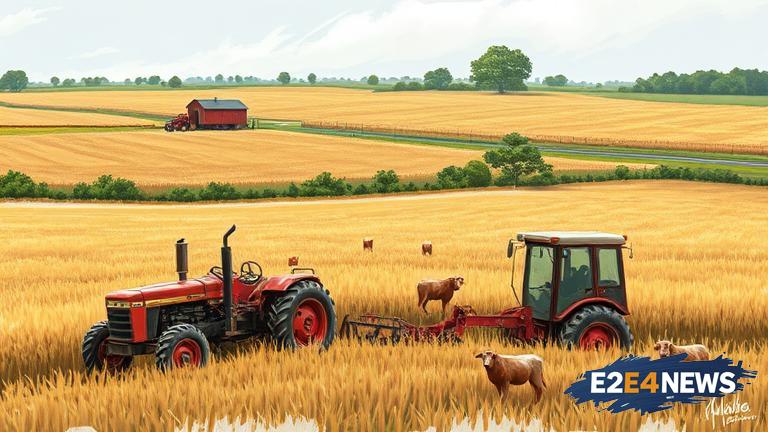Iowa farmers are facing significant challenges due to the severe weather conditions that have been affecting the state. The heavy rainfall and flooding have caused widespread damage to crops, with many farmers reporting losses of up to 50% of their yields. The delayed planting season has also had a major impact on the agricultural industry, with many farmers struggling to get their crops in the ground. The weather conditions have been particularly harsh in the northern part of the state, where the rainfall has been the heaviest. The Iowa Department of Agriculture has reported that the state’s corn and soybean crops have been severely affected, with many fields still underwater. The farmers are not only dealing with the immediate effects of the weather but also with the long-term consequences, such as soil erosion and nutrient depletion. The situation is further complicated by the fact that many farmers are still recovering from the devastating floods of 2019. The Iowa Farm Bureau has been working closely with the state government to provide support to the affected farmers, including financial assistance and counseling services. The organization has also been advocating for policy changes to help mitigate the effects of extreme weather events. Despite the challenges, many farmers remain optimistic about the future, citing the resilience of the agricultural community and the importance of farming to the state’s economy. The Iowa agricultural industry is a significant contributor to the state’s GDP, and the farmers are determined to bounce back from this setback. The state government has also been taking steps to support the farmers, including providing funding for flood relief and soil conservation programs. The USDA has also been providing assistance to the affected farmers, including emergency loans and crop insurance payments. The situation is being closely monitored by the agricultural community, with many experts warning that the effects of the weather conditions could be felt for years to come. The Iowa farmers are not alone in their struggles, as many other states in the Midwest are also dealing with similar challenges. The severe weather conditions have highlighted the need for more sustainable and resilient agricultural practices, and many farmers are now exploring new techniques and technologies to help them adapt to the changing climate. Overall, the situation is complex and multifaceted, and it will require a coordinated effort from the agricultural community, the state government, and the federal government to support the affected farmers and ensure the long-term sustainability of the industry.
